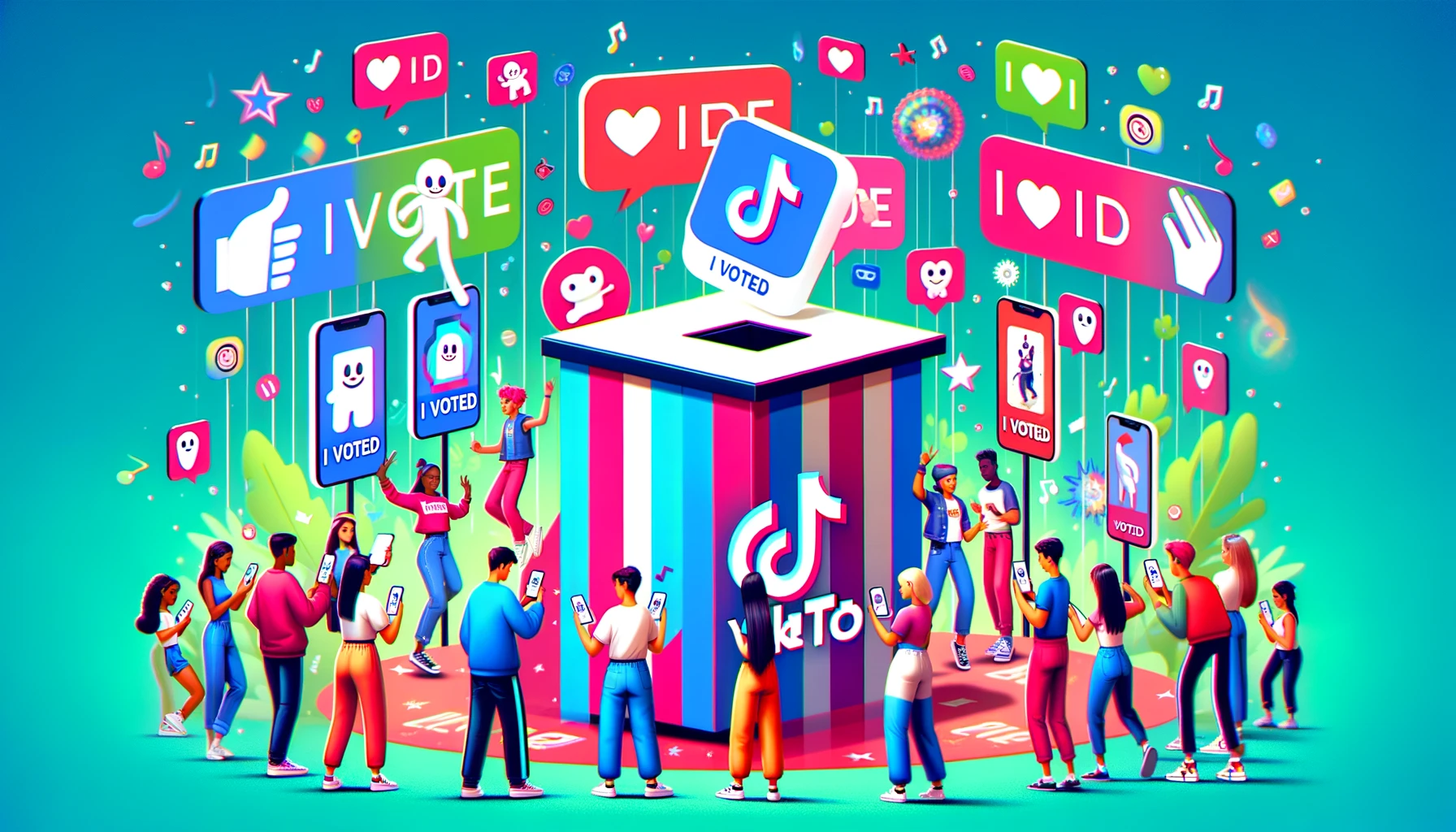In a bid to make democracy more “lit” and significantly boost youth voter turnout, authorities have announced a revolutionary new voting system: casting ballots via TikTok polls. This bold strategy aims to transform the electoral process from a dreary duty into a viral sensation, ensuring that even the most politically disengaged can swipe, tap, and double-tap their way to civic participation.
The Plan: Leveraging TikTok’s immense popularity among Gen Z and millennials, the government plans to roll out a pilot program where local and national elections can be decided in the same space where dance challenges reign supreme. Voters will now have the convenience of choosing their leaders in between learning the latest trends and sharing lip-sync battles. “If we can get millions to attempt the ‘Renegade’, imagine the turnout for ‘Referendum-gade’,” quipped an unnamed official, showcasing a surprising knack for wordplay.
The Mechanics: On Election Day, verified users will find a new “Vote Now” section on their For You Page, complete with a series of polls corresponding to their registered voting districts. After watching a mandatory 15-second informational video on each candidate or measure, users can swipe up to cast their vote, with the option to share a “I Voted!” sticker to their profile, complete with customizable sparkles and animations.
Security Measures: To address inevitable security concerns, TikTok has announced the introduction of state-of-the-art “Dance ID” technology. Voters will confirm their identity by replicating a series of dance moves, choreographed to be as unique as a signature. “It’s more secure than a fingerprint,” assured TikTok’s head of cybersecurity, “unless someone has identical rhythm and moves, which our algorithms can detect.”
Mixed Reactions: The announcement has been met with a mix of excitement, skepticism, and outright disbelief. Critics argue that the sanctity of the voting process could be undermined by technical glitches, privacy issues, or the whims of the algorithm. Meanwhile, supporters hail it as a long-overdue adaptation of democracy to the digital age, arguing that it’s no less secure than existing online voting systems and far more engaging.
Looking Forward: As the first TikTok election approaches, candidates are scrambling to adjust their campaigns. Platforms now include promises of free Wi-Fi, better meme copyright laws, and official recognition of TikTok influencers as cultural ambassadors. Political ads are expected to evolve too, with policy debates potentially giving way to dance-offs and hashtag challenges.
In a world where attention spans are short but the scroll is endless, this initiative could either be hailed as a stroke of genius or a cautionary tale in the annals of digital democracy. Only time, and the like and share counts, will tell.

